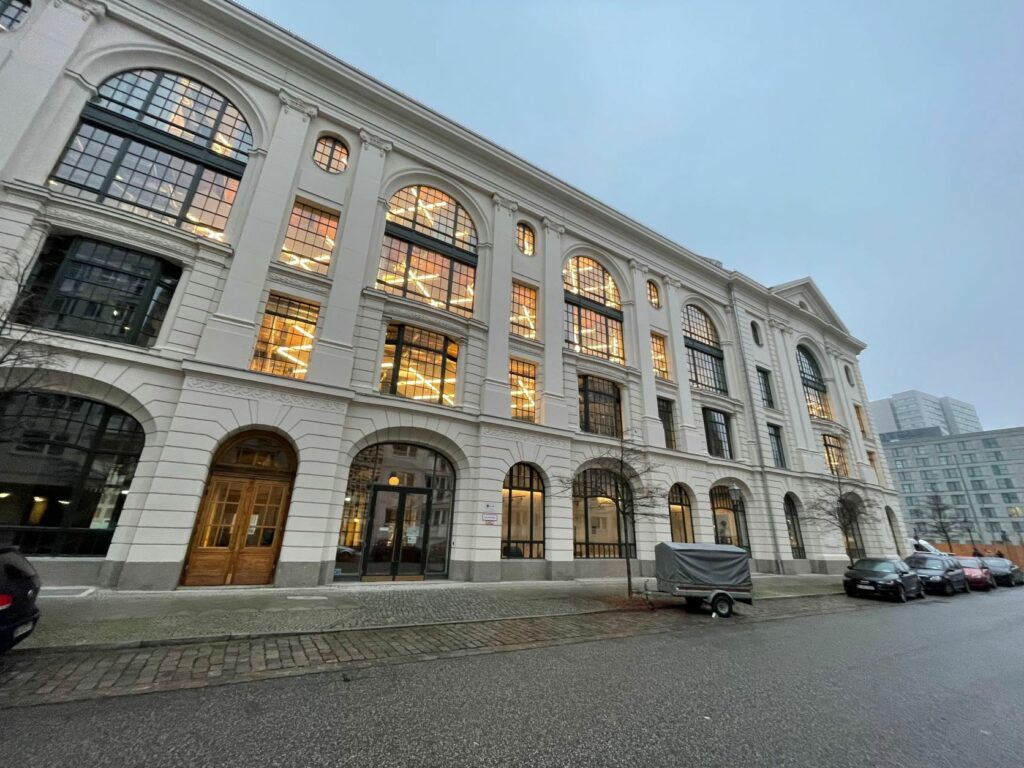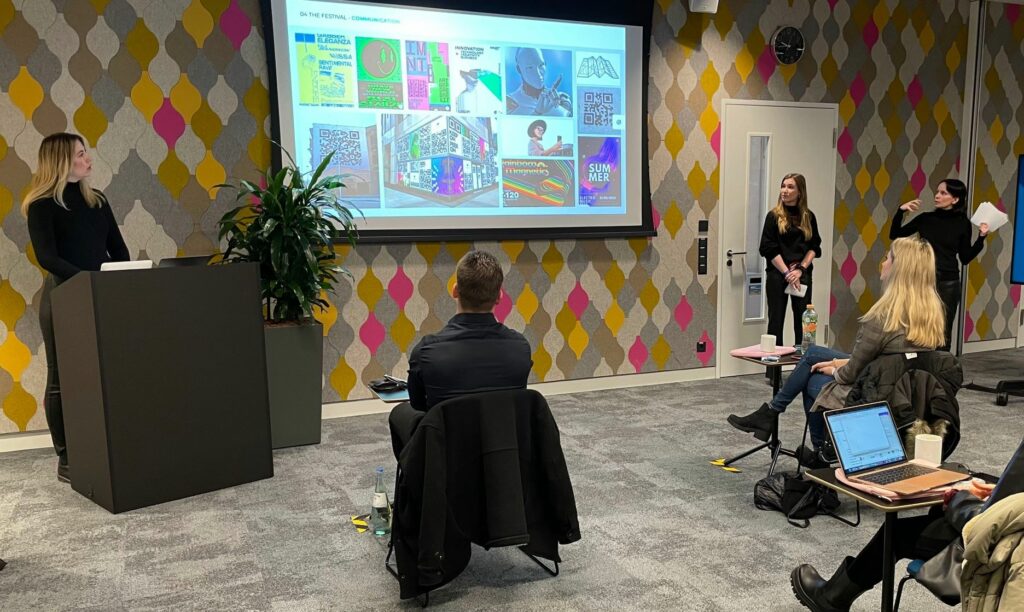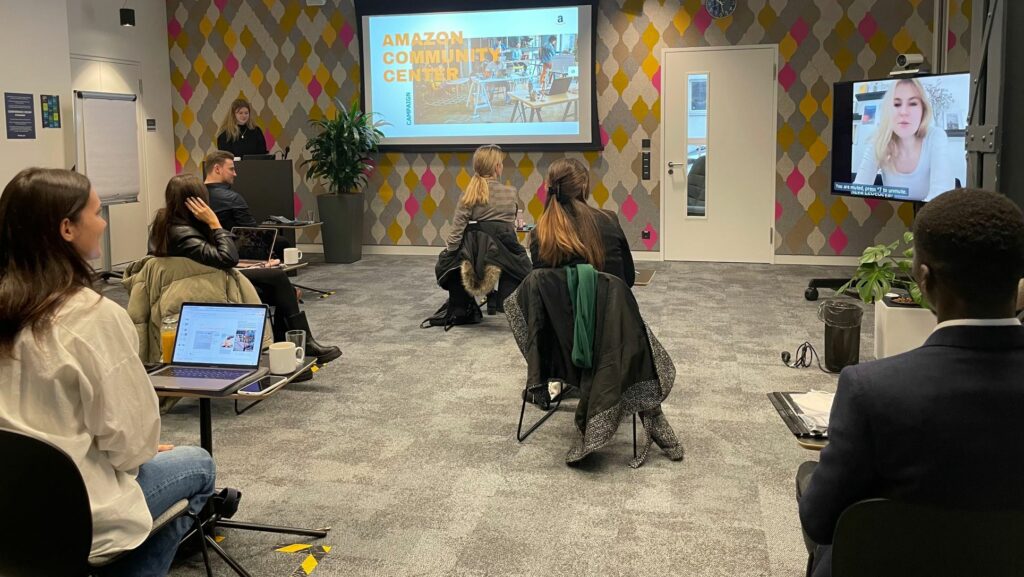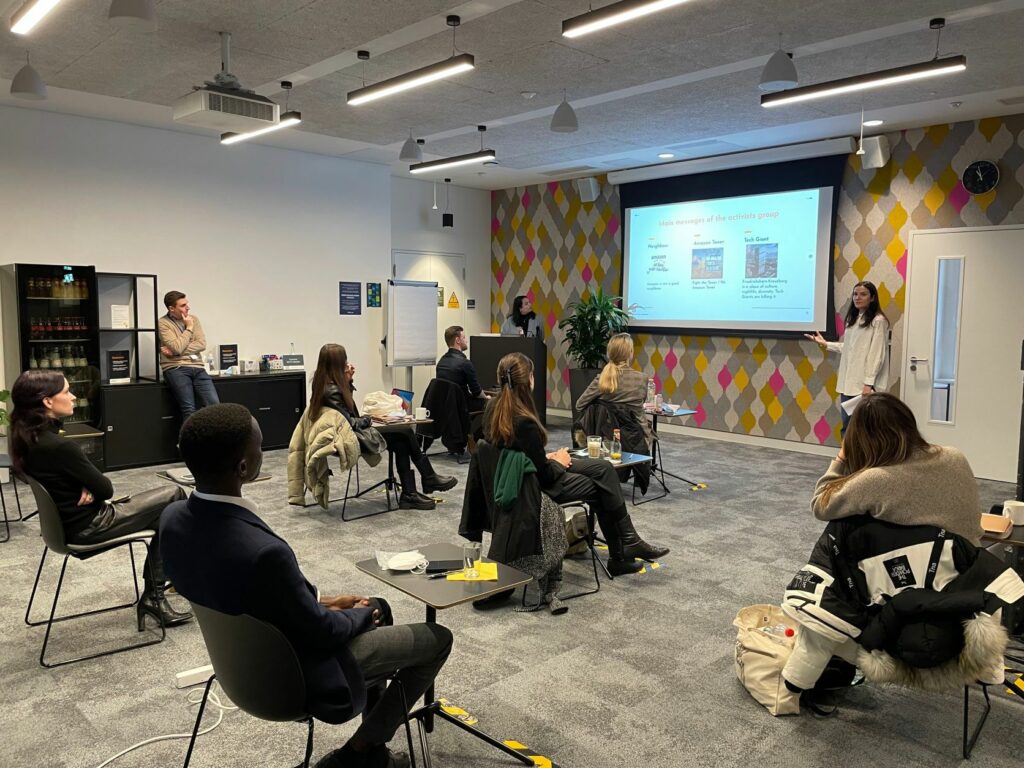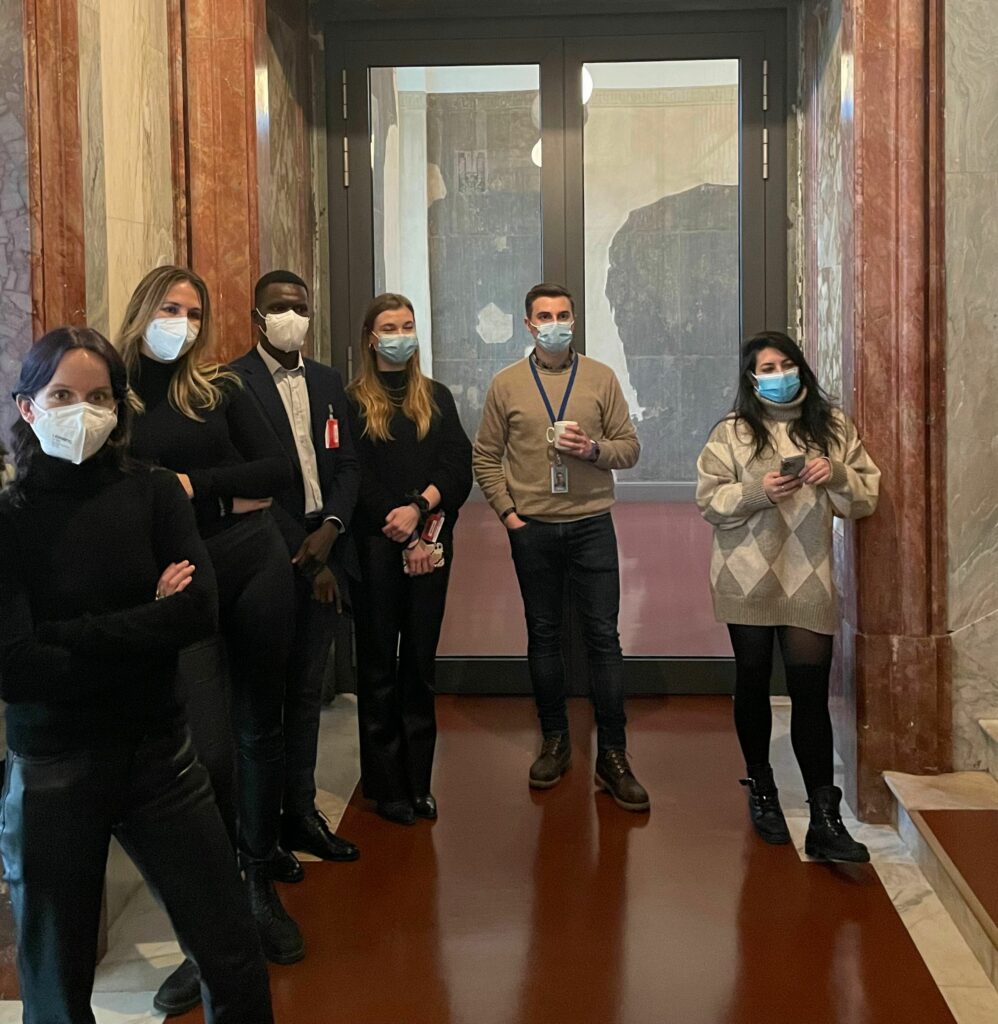A blog by Maria Chotou
Berlin based journalist Andrew Curry has more than 20 years of experience reporting from five different continents. In his eyes, he feels very privileged to get to ask questions and share stories as a journalist. His reporting agenda is diverse and impressive. He regularly writes about science, archeology, culture, politics, business, and even cycling. Curry has written for a wide variety of publications, from Architect and Bicycling to National Geographic, The New York Times, Rouleur, and Wired. He is currently a contributing correspondent for Science magazine and also a contributing editor at Archaeology.
Since October 2021, he has been teaching the module Journalistic Writing, together with Dr. Martina Kohl, to students attending the Masters in Digital Journalism at HMKW Berlin. Curry aims to provide students with the key concepts of journalistic writing and reporting, from the basic elements of a news story to pitching, reporting and writing. His reporting principle is that there is no one correct way of writing a news story. Instead, he encourages students to tell readers in a news-y way about who was there, what they said, why it was newsworthy, where and when the event took place, and what the audience reaction was (the so-called essential five Ws).
As a kid and university student, Curry lived in California and Washington, D.C., where he used to bike around a lot. Still today, he perceives cycling as a symbol of relaxation and inspiration. It helps him think and enter a different mind space. Cycling in Berlin radicalized him and made him aware of traffic, dangers and other aspects that need to be improved in the urban space of the city. Cycling is a precious time for the mind to zone out.
“One of the great things about cycling is the rhythm of the year: The ride that leaves me barely able to climb the stairs afterwards in March will seem like an easy jaunt in October, when the leaves fall once again, and then winter will come, and the wheels will turn once more,” Curry said in an Instagram post.
These impulses for wandering and mobility but also a sense of time and rhythm find expression in Curry’s curiosity with scientific topics, more specifically, archeology. He did not study history but he was always interested in it and archeology is a big part of history. “It is hard to find news in history. Archeologists make discoveries which are news but the narrative around them is the news story,” Curry explains.
Coming to Germany, Curry thought that he would write about politics. But eventually he developed his interest in science and history and decided to embrace it in his journalistic work, as it requires some background knowledge on the topics, and the fact that science publications actually pay well. “Science reporting is like any reporting,” says Curry. So even if science is not your thing, but reporting is, here is some invaluable advice from Curry to keep in mind:
The Five Ws – Accuracy and Clarity
The goal of the coverage of any event, talk, or speech as a news story is to give readers information about what happened at a specific time and place. Readers need to know the who, what, how, when and why. Who was there? What did they say? How did other people who were there react to what happened? When and where did it take place? Why should we care? News coverage requires close attention to accuracy and balance. The five Ws are the most newsworthy elements of a report and will keep the facts straight.
The Headline
The key point of a headline is to say what matters and tell the readers briefly what the story is about. Ιf you had to imagine that you knew nothing about the story, what information would motivate you to read more about it? What is the information that will catch the eye? Being conversational is very important. You are naturally trying to communicate with others after all. As Curry says, avoid quotes, colons and journalese.
The Lead
Τhe structure of the lead varies depending on the content, purpose and audience of the story. There are certainly different ways to start a story and the lead will set the tone, mood and direction for everything that follows. If there are no unanswered questions in your reporting and the ultimate goal of accuracy and clarity have been achieved, an emerging lead that reflects your story will appear.
The Nut
News stories often follow the inverted pyramid structure that weighs facts according to newsworthiness based on the journalist’s judgment. The nut is the main core of the report. It is up to the writer whether the basic information of the five Ws will come before key quotes or after. Key quotes and interesting facts summarize, analyze and give relevant details to the readers. It is essential to get quotes and interview participants for reaction during the reporting.
The Kicker
The kicker is the last sentence of the story and aims to surprise, amuse, get the reader to ponder, -or summarize the story. It can be a quote or a simple conclusion.
Practice and enjoy it
Andrew Curry might consider journalism to be a lucky job, but he would not deny that journalistic writing requires practice and careful analysis. He suggests that reading other people’s work, questioning the way the details have been collected, considering the reader’s interest and the sources is the key to success.
To check out Curry’s recent publications click on the links here: https://www.andrewcurry.com/
